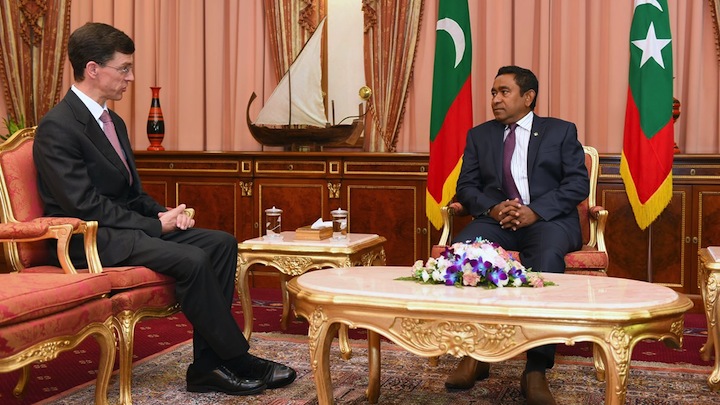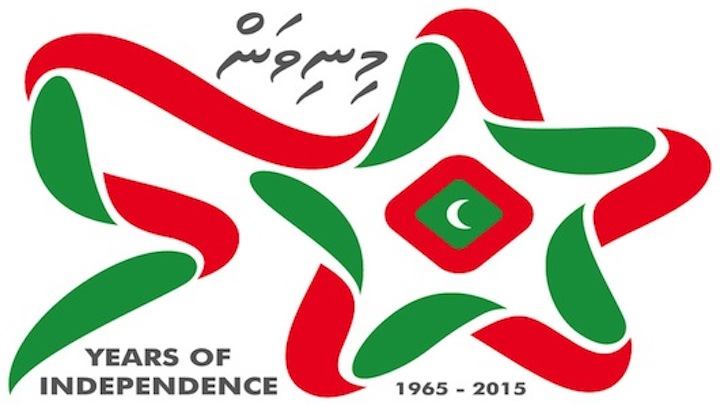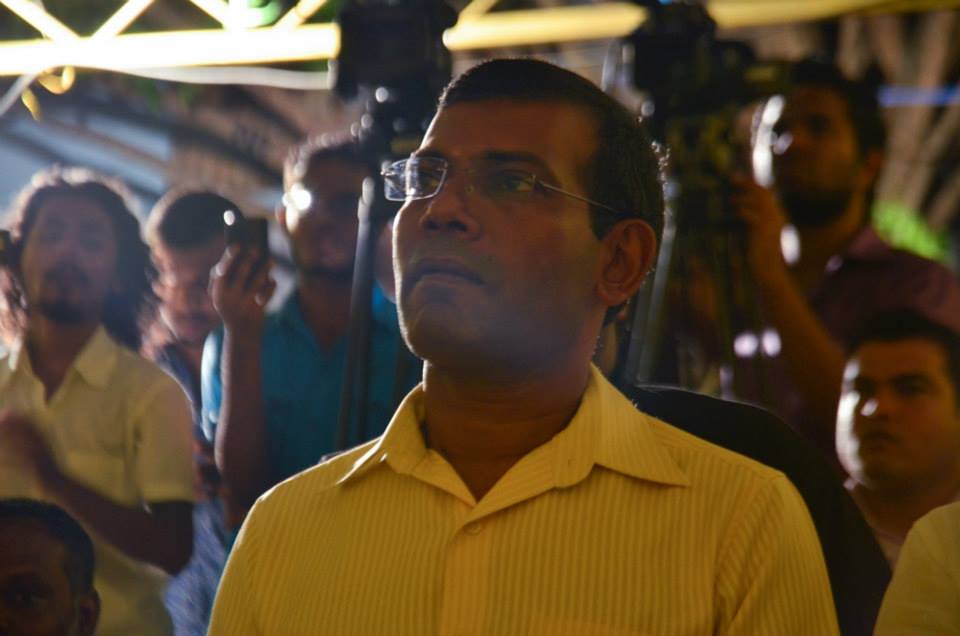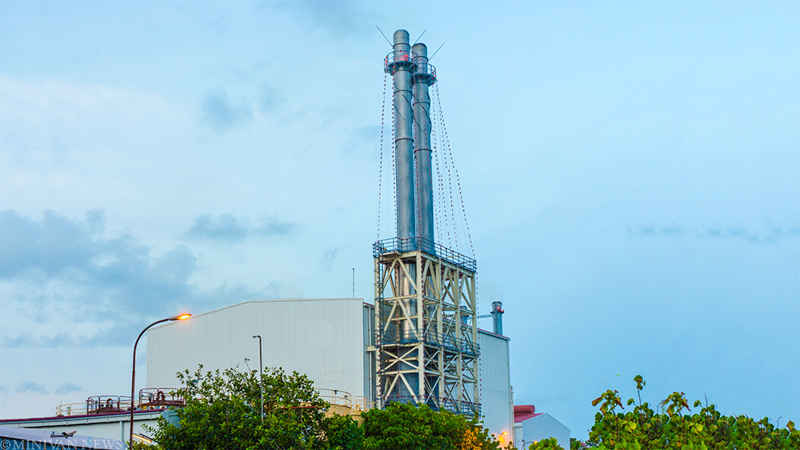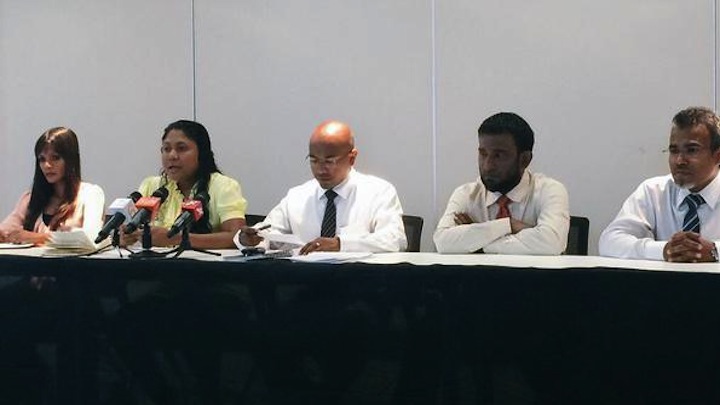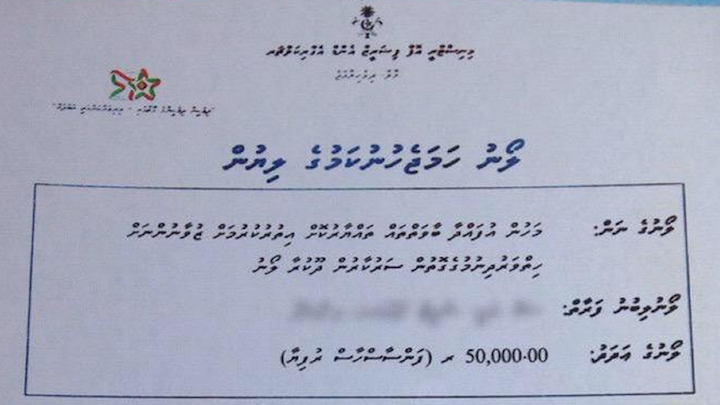The government has rejected ex-president Mohamed Nasheed as a representative for talks with the main opposition Maldivian Democratic Party (MDP).
In a tweet today, president’s office spokesperson Ibrahim Muaz Ali said the government had rejected Nasheed’s name because he is serving a jail sentence.
Nasheed was sentenced to 13 years in jail in March on terrorism charges relating to the detention of a judge during his tenure.
Foreign governments and international bodies including the UN have criticised the trial for apparent lack of due process, while the European Union parliament has called for the ex-president’s immediate release.
Nasheed’s arrest and jailing triggered daily protests and a historic anti-government protest on May 1. Nearly 20,000 people took to the streets and some 193 people were arrested.
The government subsequently called for separate talks with the three allied opposition parties – the MDP, the Jumhooree Party and the Adhaalath Party.
The MDP’s national council yesterday proposed Nasheed, chairperson Ali Waheed and parliamentary group leader MP Ibrahim ‘Ibu’ Mohamed Solih to represent the party in talks with the government.
MDP vice-president Mohamed Shifaz said the party will hold a meeting to decide on a response to the president’s office’s statement.
“But I personally believed that we should be able to determine who should represent us. Not the government,” Shifaz said.
“When they say he is serving a jail term, we need to look at the circumstances in which he was sentenced. The Maldivian public and the world do not accept the trial and its verdict. Nasheed is a former president, and a man loved by a large majority of the public. Maldivians do not see him as a convict.”
In late April, the pro-government majority voted through amendments to the Prison and Parole Act that prohibited inmates from holding high-level posts in political parties. The revised law effectively stripped Nasheed of the MDP presidency.
Some ruling party MPs have also threatened to cut financial payouts to Nasheed by amending the law on privileges and immunities of former presidents to exclude individuals serving a jail sentence.
Speaking to Minivan News, Muaz said the government will proceed with the talks as soon as representatives are decided.
“If there is no legal, medical, physical or administrative obstructions regarding the representatives proposed by the three parties, we will proceed with the talks,” he said in a tweet today.
President Abdulla Yameen’s proposed agenda for talks focuses on three aspects: political reconciliation, strengthening the judiciary and legal system and political party participation in economic and social development
The government has ruled out negotiations over the release Nasheed and former defence minister Mohamed Nazim, insisting the president does not have the constitutional authority to release convicts before the appeal process is exhausted.
The opposition has previously questioned the government’s sincerity, pointing out that several opposition leaders had been arrested from the May 1 protest.
While the Jumhooree Party (JP) has accepted the invitation for talks, the religious conservative Adhaalath Party proposed its detained president, Sheikh Imran Abdulla, among the party’s representatives.
Imran was arrested on May 1 and remains in police custody.
The JP’s representative for talks, deputy leader Ameen Ibrahim was also arrested, but released by the High Court. The police are appealing the court’s ruling at the Supreme Court, a move the opposition says is aimed at barring Ameen from representing the JP.
During the national council debate yesterday, MP Eva Abdulla stressed the importance of talks involving all political parties, including the ruling Progressive Party of Maldives (PPM).
“MDP is the first party that called to solve the political crisis. So we are happy the government took the initiative to hold talks and we accept it. But we want to hold the discussions together, not separately as the government has suggested,” she said.
“We are not going to discussions to talk only about what the government wants. The discussions will include what the government wants, but also what we want. The agenda of the talks also should be set at the discussions.”
The opposition coalition has called for a third mass protest on June 12.
Likes (4)Dislikes
(4)Dislikes (0)
(0) 